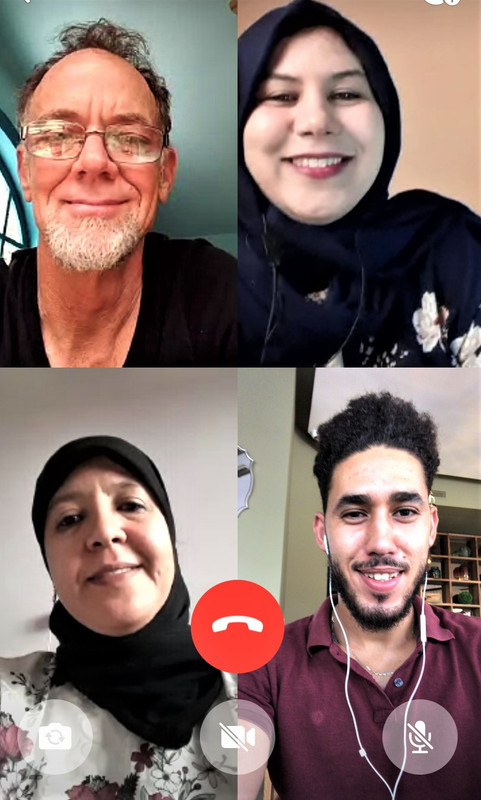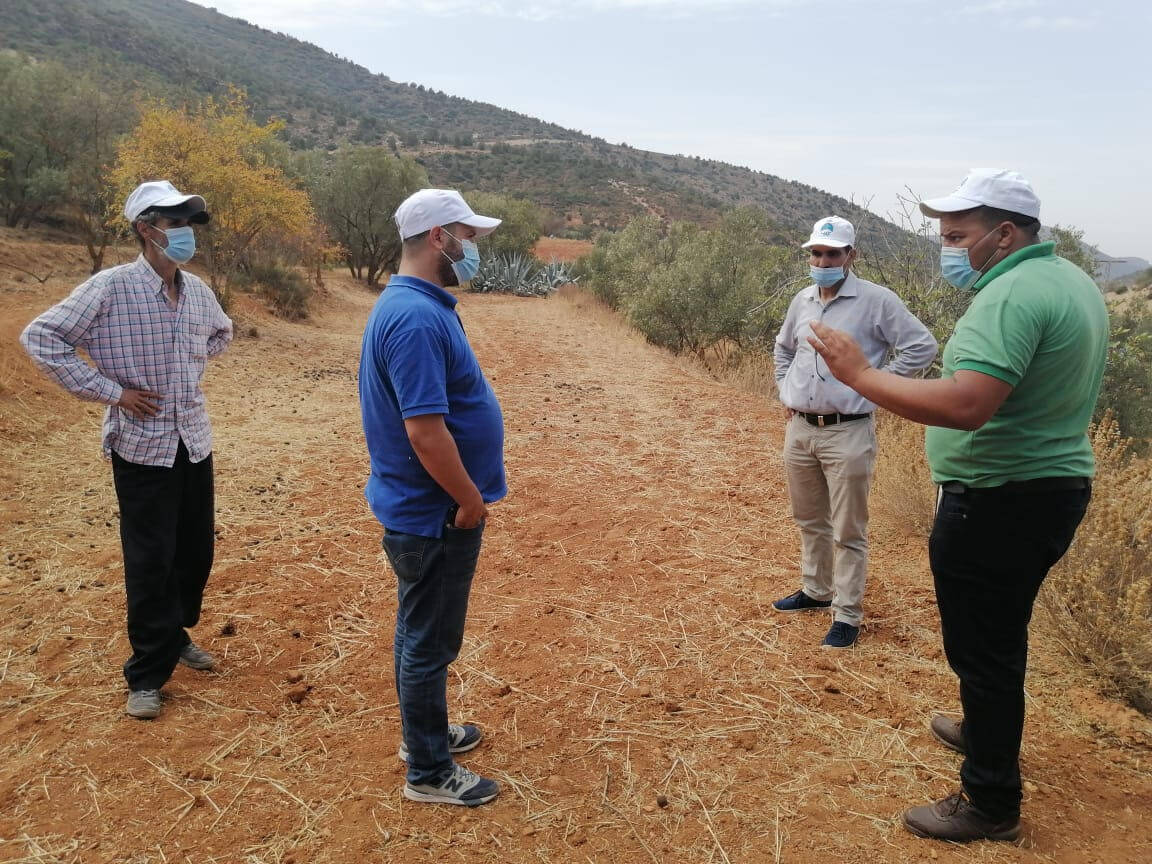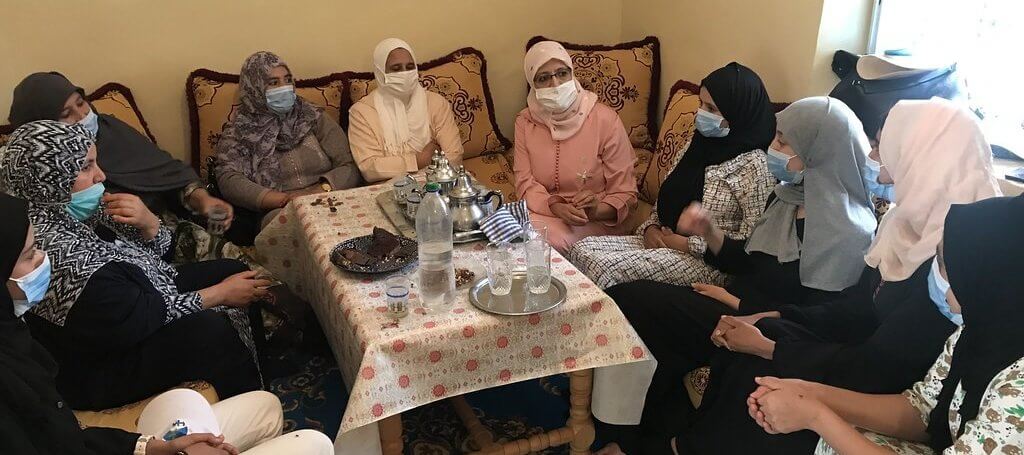Caption: High Atlas Foundation’s USAID Farmer-to-Farmer Volunteer Rachida meeting women in Tassa Ouirgane.
During the shut-down and uncertainties resulting from the COVID-19 pandemic, USAID encouraged Farmer-To-Farmer (F2F) implementers worldwide to support local Volunteers, paired with remote U.S. Volunteers, as they collaborate with agricultural cooperatives and education centers in achieving their goals. The High Atlas Foundation (HAF)-F2F team and USAID launched the first local-U.S. Volunteer assignment in Morocco, with Rachida Outouchki, President of Aboughlo Women’s Cooperative, working integrally with former Peace Corps and F2F Volunteer Mark Apel. Together they evaluated a new agricultural project managed by a group of six young women in the Tassa Ouirgane village in the Marrakech-Safi region. The women grow fruit trees and sell them to farming families.
The results of this assignment include the women registering as a formal cooperative. The women carry tremendous energy and potential, and they are aiming to develop a unique model in the region. Despite not being given the opportunity to continue their education after primary school, they embraced the experiential learning workshops on empowerment and self-discovery, as well as participatory planning of their projects and growth. Further, they seized chances to grow, took risks, compromised, challenged norms, and persisted. The F2F program promotes this initiative with expertise and follow-up, and volunteers Rachida and Mark provided the managerial and technical support to help the members formalize the creation of Women of Takhrkhourt Cooperative. The registration allows the members to create a bank account, benefit from government initiatives, receive investments, and expand.

Caption: USAID Farmer-to-Farmer Volunteers Rachida (bottom-left) and Mark (top – left) during their first online meeting.
The Cooperative’s members still face many challenges, however. During the initial visits by local volunteer Rachida, data was collectively gathered about the members’ immediate economic conditions and goals, and responsibilities and roles were defined. Rachida, Mark, and F2F staff consulted together and multiple recommendations were identified, including how to expand their membership and approaches to resolving competing points of view.
HAF continues to follow-up with the Takherkhourt Cooperative on such issues as locating work space, developing a beekeeping project that will further enhance their tree nursery and give incentive to creating a medicinal plant nursery, building financial management capacities, visiting other nurseries to strengthen technical skills, and collaborating with the local men’s association. Sustainable agricultural development is a long-term commitment, and Rachida and Mark seek more F2F assignments with Takhrkhourt and other women’s and youth cooperatives in Morocco.







